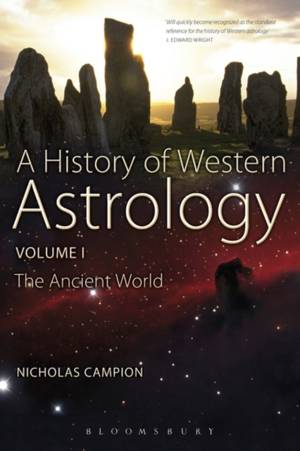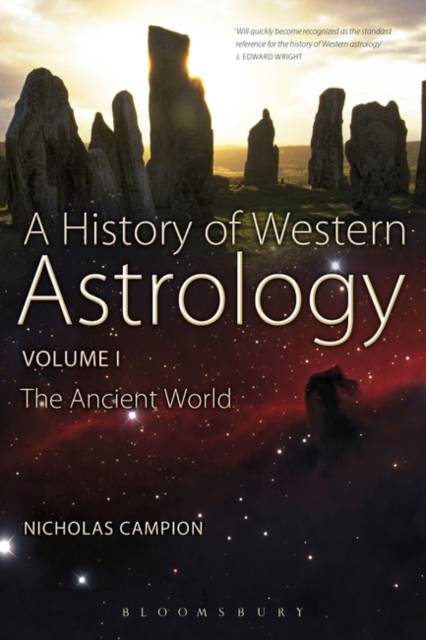
Je cadeautjes zeker op tijd in huis hebben voor de feestdagen? Kom langs in onze winkels en vind het perfecte geschenk!
- Afhalen na 1 uur in een winkel met voorraad
- Gratis thuislevering in België vanaf € 30
- Ruim aanbod met 7 miljoen producten
Je cadeautjes zeker op tijd in huis hebben voor de feestdagen? Kom langs in onze winkels en vind het perfecte geschenk!
- Afhalen na 1 uur in een winkel met voorraad
- Gratis thuislevering in België vanaf € 30
- Ruim aanbod met 7 miljoen producten
Zoeken
A History of Western Astrology Volume I
The Ancient and Classical Worlds
Nicholas Campion
Paperback | Engels
€ 44,95
+ 89 punten
Omschrijving
This is the first comprehensive examination of astrology's origins and it examines the foundations of a major feature of popular culture in the contemporary west, one which has its origins in the ancient world. Campion explores the relationship between astrology and religion, magic and science, and explores its use in politics and the arts.
Beginning with the theories of the origins of religion in sun-worship, it spans the period between the first Paleolithic lunar counters around 30,000 BC and the end of the classical world and rise of Christianity. Campion challenges the idea that astrology was invented by the Greeks, and asks whether its origins lie in Near-Eastern religion, or whether it can be considered a decadent Eastern import to the West. He considers the evidence for reverence for the stars in Neolithic culture, Mesopotamian astral divination, Egyptian stellar religion, and examines attitudes to astrology and celestial prophecy in the Bible. He considers such artefacts as the mysterious, 15,000-year-old 'Venus of Lauselle', the reasons for the orientation of the pyramids, the latest theories on Stonehenge as a sacred observatory, Greek theories of the ascent of the soul to the stars and the Roman emporer Nero's use of astrology to persecute his rivals.
Beginning with the theories of the origins of religion in sun-worship, it spans the period between the first Paleolithic lunar counters around 30,000 BC and the end of the classical world and rise of Christianity. Campion challenges the idea that astrology was invented by the Greeks, and asks whether its origins lie in Near-Eastern religion, or whether it can be considered a decadent Eastern import to the West. He considers the evidence for reverence for the stars in Neolithic culture, Mesopotamian astral divination, Egyptian stellar religion, and examines attitudes to astrology and celestial prophecy in the Bible. He considers such artefacts as the mysterious, 15,000-year-old 'Venus of Lauselle', the reasons for the orientation of the pyramids, the latest theories on Stonehenge as a sacred observatory, Greek theories of the ascent of the soul to the stars and the Roman emporer Nero's use of astrology to persecute his rivals.
Specificaties
Betrokkenen
- Auteur(s):
- Uitgeverij:
Inhoud
- Aantal bladzijden:
- 400
- Taal:
- Engels
Eigenschappen
- Productcode (EAN):
- 9781441127372
- Verschijningsdatum:
- 16/06/2009
- Uitvoering:
- Paperback
- Formaat:
- Trade paperback (VS)
- Afmetingen:
- 157 mm x 229 mm
- Gewicht:
- 625 g

Alleen bij Standaard Boekhandel
+ 89 punten op je klantenkaart van Standaard Boekhandel
Beoordelingen
We publiceren alleen reviews die voldoen aan de voorwaarden voor reviews. Bekijk onze voorwaarden voor reviews.









